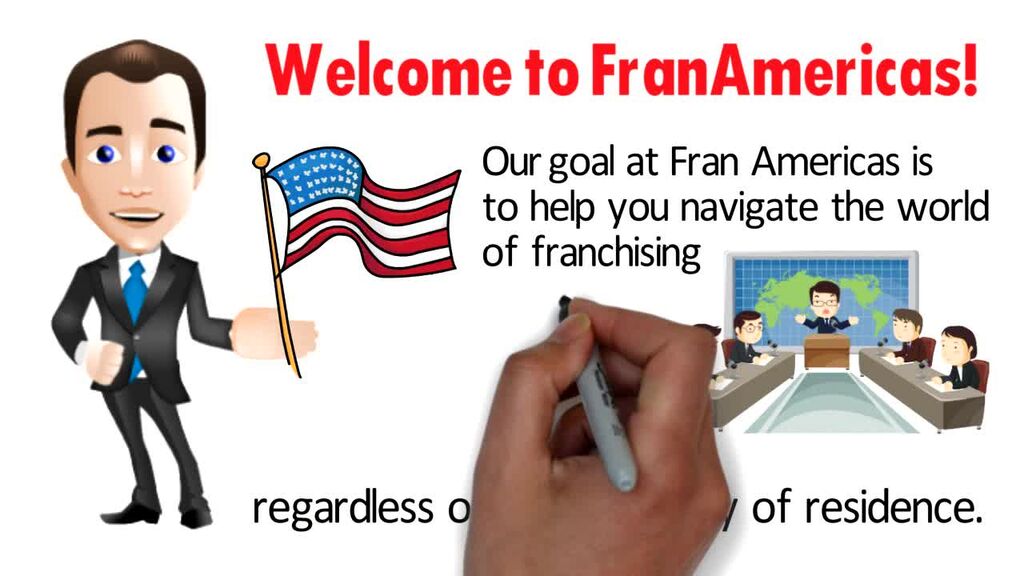What is Franchising?
Franchising is a network of interdependent business relationships that allows a number of people to share:
- A brand identification.
- A successful method of doing business.
- A proven marketing and distribution system.
In short, franchising is a strategic alliance between groups of people who have specific relationships and responsibilities with a common goal to dominate markets, i.e., to acquire and keep more customers than their competitors.
Legal factors to be considered with a Franchise
Franchising is defined by state and federal laws as a commercial relationship in which three factors are present:
- A licensed trademark.
- A prescribed marketing plan.
- The payment of a franchise fee for the right to participate in the program.
When these three factors exist, the relationship is regulated as a franchise by state and federal laws.
A “Business Opportunity” is similar to a franchise without the restrictions and royalties. This can be an advantage with SOME industries. Brand recognition would not be a factor, as well as disclosure of ALL present & previous owners.
Why to consider franchising in The United States
- Lower Risks with predictable results: Proof of Success
- Established product or service
- Experience of Franchisor
- Group purchasing power
- Name recognition
- Proven System of Operation
- Management Assistance
- Business Plan
- Start-up Assistance
- Assistance in Financing
- Collaboration with other franchisees
Franchise Industry Statistics
- Franchise businesses account for 3.0% of U.S. gross domestic product (GDP). Growth of GDP originating in the franchise sector will increase 4.8% in 2012, from $439 billion to $460 billion.
- The number of direct jobs rebounded in 2011 to post a gain of 1.9%. In 2012, franchise business employment will increase by 2.1%, from 7,934,000 jobs to 8,102,000 jobs – an increase of 168,000 jobs.
- The United States Chamber of Commerce found that 86% of franchises opened within the last five years were still under the same ownership and 97% of them were still open for business.
- Franchises are expected to add nearly 200,000 new jobs in 2014 – 10% of ALL new US jobs.
- The number of franchise businesses in 2014 is expected to rise by 12,915 in 2014, bringing total establishments to 770,368.
- The output of established franchises, in terms of dollar revenue, is expected to increase 4.7% in 2014 – up from the 4.3% recorded in 2013.
- Within the franchising sector, business services, commercial and residential services, and quick service restaurants are expected to be the biggest drivers of job creation in 2014.
- The minority ownership rate for franchised businesses increased from 19.3 percent in 2002 to 20.5 percent in 2007. In 2007, 20.5% of franchised businesses were owned by minorities, compared to 14.2% of non-franchised businesses.
- A U.S. department of commerce study conducted from 1971 to 1997 showed that during that time less than 5% franchise businesses were closed each year.
- Multi-unit franchise operators control 55% of all franchised units in the U.S.
- The average multi-unit franchisee owns 5 franchised locations, up from about 3.5 in 2007.
- 1 out of every 12 business is a franchised business
- In 2000, the median gross annual income, before taxes, of franchisees was in the $75,000 to $124,000 range, with over 30% of franchisees earning over $150,000 per year.
Why to consider franchising in The United States
- Lower Risks with predictable results: Proof of Success.
- Established product or service.
- Experience of Franchisor.
- Group purchasing power.
- Name recognition.
- Proven System of Operation.
- Management Assistance.
- Business Plan.
- Start-up Assistance.
- Assistance in Financing.
- Collaboration with other franchisees.
What are the different types of franchise agreements?
- SINGLE-UNIT (DIRECT-UNIT) FRANCHISE: A single-unit (direct-unit) franchise is an agreement where the franchisor grants a franchisee the rights to open and operate ONE franchise unit. This is the simplest and most common type of franchise. It is possible, however, for a franchisee to purchase additional single-unit franchises once the original franchise unit begins to prosper. This is then considered a multiple, single-unit relationship.
- MULTI-UNIT FRANCHISE: A multi-unit franchise is an agreement where the franchisor grants a franchisee the rights to open and operate multiple franchise units. The franchisor will often provide the franchisee with the option to secure multi-unit territories at the time of contract discussion and negotiation.
- MASTER FRANCHISE: A master franchise agreement gives the franchisee more rights than an area development agreement. In addition to having the right and obligation to open and operate a certain number of units in a defined area, the master franchisee also has the right to sell franchises to other people within the territory, known as sub-franchises. Therefore, the master franchisee takes over many of the tasks, duties and benefits of the franchisor, such as providing support and training, as well as receiving fees and royalties.
What is an FDD and why is it important?
The FDD provides information about the Franchisor and the Franchise System. The FDD is the format for the disclosure document.
- Description of the franchisor, predecessors and affiliates.
- Identity and business experience of officers and directors.
- Litigation history.
- Bankruptcy history.
- Additional costs and fees.
- Initial investment.
- Restrictions on sources of products & services.
- Franchisee’s Obligations.
- Financing arrangements for franchisees.
- Franchisor’s obligations.
- Territorial protection.
- Trademarks, service marks and trade names.
- Patents, copyrights & proprietary information.
- Franchisee requirement to operate the business.
- Restrictions on sale of goods and services.
- Renewal, termination, transfer and dispute resolution of the franchise.
- Endorsements by public figures.
- Financial Performance Representations.
- Names, addresses, and telephone numbers of current and former franchisees.
- Financial statements.
- Contracts and agreements.
- Receipt Exhibits.
- Franchise Agreement.
- Equipment Lease.
- Premise Lease.
- Loan Agreement.
- Others.









